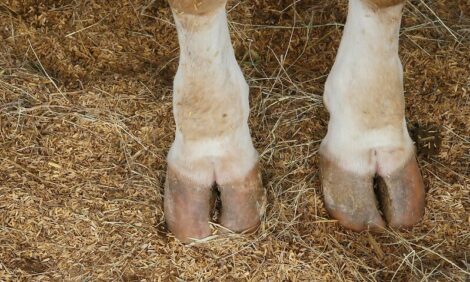



Weekly Overview: EU Countries with Sow Stalls Will Feel the Heat
ANALYSIS - The authorities in the European Union are beginning to put pressure on those Member States where stalls are still in use for sows throughout their pregnancy, with nine countries receiving warning letters from the European Commission last week. As a result of the new regulations, high feed prices and other factors, German pig meat production was 2.5 per cent lower last year than in 2011 and producers in Australia are forecasting another difficult year. When it is so hard to make money from pigs, producers might consider diversifying into renewable energy; the topic was discussed at recent conference in the UK.The European Commission (EC) is starting to get tough with countries that are not complying with the regulations banning sow stalls.
Last week, the Commission wrote a formal notice letter to Belgium, Cyprus, Denmark, France, Germany, Greece, Ireland, Poland and Portugal, telling them to take action to ensure the Directive banning sow stalls is implemented.
The Directive 2008/120/EC came into effect on 1 January requiring sows to be kept in groups for most of their pregnancy.
The political decision was initially passed in Europe in 2001 and the European countries have had 12 years to comply with the measures.
Countries not complying with the directive have two months to reply and come up with a satisfactory response to the formal notice letter.
If the response is found not to be satisfactory, the European Commission will issue a Reasoned Opinion, which gives the countries two months to comply with the directive. If they still do not comply, the matter is sent to the European Court of Justice.
A spokesman for the European Commission in Brussels said that the process puts legal pressure on countries to comply.
In the meantime, these countries that are flouting the rules continue to "undermine animal welfare and cause market distortions".
For the year 2012, meat output in Germany was lower than the previous year - for the first time since 1997.
Almost 5.5 million tonnes of pig meat were produced in Germany last year - 2.5 per cent or 140,700 tonnes less than in 2011.
In Australia, pork producers are predicting that 2013 will be another tough year on the farm if feed grain prices stay high.
Changing topic, in the UK, diversification into renewable energy can bring good investment returns for farmers providing a steady and predictable income.
The income is not related to volatile food prices and can be traced forward for between 20 and 25 years, according to Steve Edmunds, director of Mole Valley Renewables. He was addressing the 'Energy Now' conference in Telford, reported Editor in Chief, Chris Harris, from the event.







